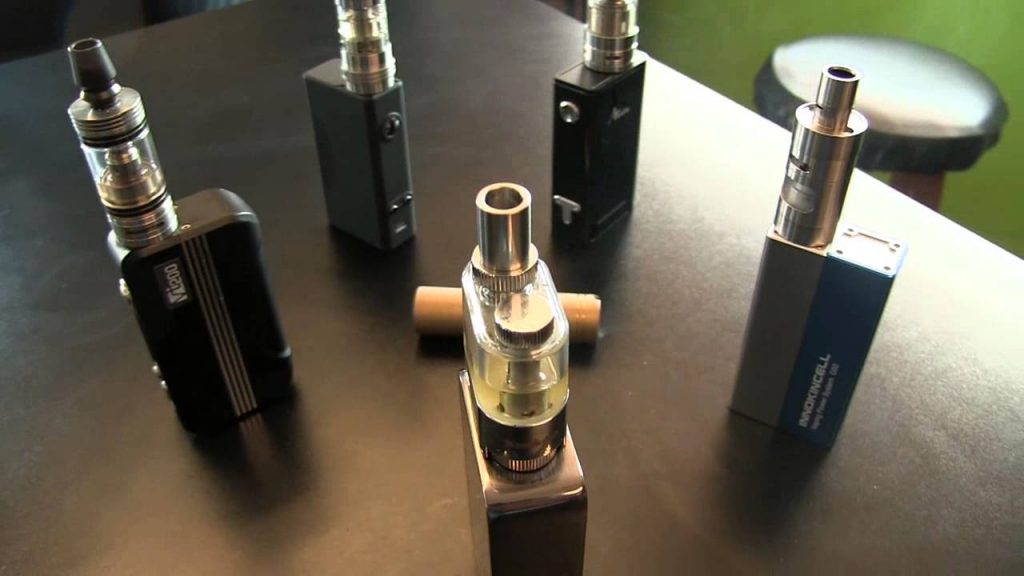FDA orders three small e-cigarette makers to pull products from the market

The moves could be the first in a larger agency crackdown on vaping products
By Dan Diamond
The Food and Drug Administration on Thursday ordered three small e-cigarette manufacturers not to sell their flavored products, the first in a series of decisions that could imperil products sold by Juul and hundreds of other e-cigarette, hookah, cigar and pipe manufacturers.
Under the FDA’s orders, the manufacturers — JD Nova Group LLC, Great American Vapes and VaporSalon — must pull 55,000 existing or planned flavored products from the market or risk enforcement. Regulators said the companies’ applications failed to provide “sufficient evidence” that their products provide a net public health benefit for adult smokers compared with the “threat posed by the well-documented, alarming levels of youth use” of flavored vapes.
The agency’s orders, which were its first marketing denials for e-cigarettes, singled out the companies for selling vapes that come in flavors such as Apple Crumble, Dr. Cola and Cinnamon Toast Cereal. “We know that flavored tobacco products are very appealing to young people, therefore assessing the impact of potential or actual youth use is a critical factor in our decision-making about which products
may be marketed,” FDA acting commissioner Janet Woodcock said in a statement.
The agency’s orders come amid a broader battle over the future of vaping in the United States. Public health advocates argue that e-cigarettes — and particularly products that come in fruity flavors — have sparked a new epidemic of younger adults hooked on nicotine, rather than simply helping adults quit smoking.
The FDA is set to decide the fate of about 2 million remaining vaping and other non-cigarette tobacco products by Sept. 9. The number of product applications is high because e-liquids sold in adult vape shops come in a vast array of flavors and nicotine strengths, each of which must be reviewed. Vaping advocates Thursday expressed alarm at the FDA’s decision, with some warning that the broader industry is at risk.
Greg Conley, president of the advocacy group American Vaping Association, said the three companies targeted by FDA on Thursday had minimal market share and chastised the agency for going after “low- hanging fruit.” Reached by phone, representatives of Great American Vapes and VaporSalon declined to comment. The owners of JD Nova Group did not immediately respond to a request for comment.
Conley also said he was frustrated that the Biden administration had continued a Trump-era crackdown on e-cigarettes, despite arguments that the products could help millions of adults quit smoking with less risk. “I don’t think there has been more than a few minutes of thinking on this issue over the last 18 months because of covid,” Conley said.
Public health groups commended the FDA’s action and called for the agency to go further. “We stand firmly with the science that *no* flavored tobacco products are appropriate for the protection of public health, and all should be removed,” the American Lung Association wrote on Twitter. Scott Gottlieb, who served as FDA commissioner during the Trump administration, blamed e-cigarette manufacturers for their predicament.
“Many companies had ample time, and the benefit of guidances that we issued, to provide a path toward compliance, so they could demonstrate their value as tools that could help current smokers quit combustible tobacco,” Gottlieb said. “Many of them chose to fight the laws Congress enacted, and the FDA, and they didn’t invest in demonstrating the public health benefits that they asserted.”
With the FDA still set to rule on Juul and other companies’ applications, a top regulator on Thursday stressed that the agency would be closely reviewing the potential risk to children.
“Companies who want to continue to market their flavored [e-cigarette] products must have robust and reliable evidence showing that their products’ potential benefit for adult smokers outweighs the significant known risk to youth,” Mitch Zeller, director of the FDA’s Center for Tobacco Products, said in a statement.
Laurie McGinley contributed to this report.



